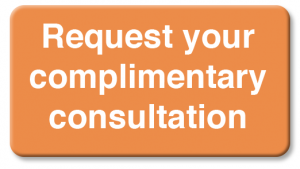Companies should incorporate the best travel tools into their corporate relocation programs. Global Mobility Solutions’ industry benchmarking study shows that only 23% of Relocation Management Companies (RMCs) provide any form of travel tools. GMS is a leader in the relocation industry on this point, providing a full range of useful resources for transferees.
Industry Benchmarking Studies Highlight Best Travel Tools
GMS has recently published several Industry Benchmarking Studies to help companies learn whether their company’s relocation program is designed following industry-specific best practices. There are many benefits to a corporate relocation policy benchmarking. For example, companies can learn whether their relocation program offers the best travel tools as compared to those offered by competitors in their specific industry.
The relocation industry’s best practice is to schedule a relocation program and policy review every 12 to 18 months to ensure your company maintains its competitive position. This review will also help your company learn about the relocation industry’s many solutions to meet ever-increasing client requirements and employee needs.
Five Best Travel Tools for Relocation Programs
There are five best travel tools for relocation programs. All of these tools can be designed to work seamlessly with each client’s travel policy and relocation programs:
1. Compliance to Company Travel Policy
An online travel tool quickly and easily communicates guidelines to employees. Best travel tools for compliance also show specific features and options for each client’s policy. Limits that match policy guidelines should also be shown, to help employees choose the most appropriate options.
2. Tracking Travelers (GPS)
Tracking employee travel is important for several reasons. Companies need to ensure the safety of employees during their travels, so knowing where they are at any given time is extremely valuable. Also, companies need to track the number of days-in-country for reporting requirements.
3. Compliance for Entry, Re-entry, and Taxes
Companies need to track the number of days an employee stays within a country for reporting requirements that may relate to tax issues, or specific work permits. Also, countries may have specific entry/re-entry requirements.
4. Best Travel Tools Bill Direct to Client, or to GMS
Many companies appreciate the option of direct billing. Billing travel costs directly to the client, or to GMS with no markup back to the client, has many benefits:
- Paperwork reduction
- Administrative cost reduction
- Simplified processes
- Employees don’t need to submit for reimbursements
- Itemized invoices show all travel expenses
5. Custom Reporting Options
Comprehensive reports that show every element of travel and costs are helpful to clients for managing travel budgets and programs. Reports that are customizable can help measure program effectiveness and readily highlight areas that are out of compliance.
How Can Companies Learn About the Best Travel Tools?
Companies should review their current travel policy and relocation program to determine if they are using the best travel tools. RMCs with expertise and experience in travel policies for relocation programs are a valuable resource for policy reviews. Companies should schedule a policy review on a regular basis to learn about the latest features to streamline and enhance reporting and compliance requirements.
Conclusion
Global Mobility Solutions’ team of corporate relocation experts has helped thousands of our clients benchmark their relocation program and incorporate the best travel tools into their business travel policy. Our team can help your company understand how to provide the best travel tools for your traveling employees.
GMS was the first relocation company to register as a .com. The company also created the first online interactive tools and calculators, and revolutionized the entire relocation industry. GMS continues to set the industry pace as the pioneer in innovation and technology solutions with its proprietary MyRelocation® technology platform.
Learn how to incorporate the best travel tools into your company’s relocation program. Contact our experts online or give us a call at 800.617.1904 or 480.922.0700 today.









